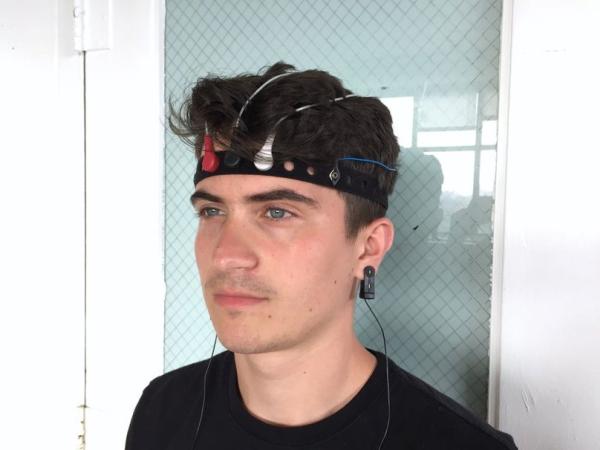
In this post, we will briefly discuss Control-Arduino-Using-Your-Brain-and-OpenBCI GUI: This tutorial shows you how to get started streaming data from the OpenBCI GUI‘s Focus Widget via Serial connection to an Arduino UNO Rev3. Specifically, this is designed for use in classroom settings for individuals who have little or no electronics experience. No “hacking” is involved!
OpenBCI hardware and software are open source! Experienced makers have the option of building this project from scratch. Full Documentation: OpenBCI Docs on GitHub.
Grade Level Recommendations and Unit Timeline:
- Middle School: 2-5 days
- High School: 1-5 days
- College: 1-4 days
This includes the time it takes to complete this instructable and then expand the project using the Arduino and available hardware (~60 mins each day). Teachers should complete this instructable before sharing with students and also account for lab setup time before each lesson.
Using just one OpenBCI board with a whole class: The teacher should complete this Instructable and then share with the whole class as a live demonstration, with a few students chosen at random to be the Connected User. Then, student groups can use the recordings in the computer lab with Arduino kits and the GUI in Playback Mode while taking turns using the OpenBCI board.
Skills Addressed:
- Computer Science: PC to Arduino Serial Communication
- NGSS: Gather and synthesize information that sensory receptors respond to stimuli by sending messages to the brain for immediate behavior or storage as memories. MS-LS1-8
- NGSS: Use argument supported by evidence for how the body is a system of interacting subsystems composed of groups of cells. MS-LS1-3
- NGSS: Develop and use a model to illustrate the hierarchical organization of interacting systems that provide specific functions within multicellular organisms. HS-LS1-2
Control Arduino Using Your Brain and OpenBCI GUI Brief:
Hardware:
- A computer that meets the GUI System Requirements
- An Arduino UNO($20), or other similar device
- A Ganglion($200) or Cyton($500) board
- The OpenBCI Headband Kit($200) or Ultracortex “Mark IV” EEG Headset($350 for Print-It-Yourself)
- Recommended: OpenBCI Classroom Bundle (5 kits) + Dedicated Support($2800)
Software:
- The Arduino IDE(free)
- The example Arduino sketch (provided)
- The OpenBCI GUI(free) standalone app or Processing sketch
Flexible Grouping:
- The Software Operator controls the computer and software.
- The Connected User is physically connected to an OpenBCI board.
- The Hardware Specialist helps make sure the Connected User is properly connected.
- The Recorder takes notes for the group and assists the Software Operator and Hardware Specialist.
Helpful Background Skills:
- Arduino Basics
- Knowledge of Arduino or C-based programming
- How to setup the OpenBCI Headband Kit with Cyton or Ganglion
OpenBCI Getting Started Guides:
Here is a helpful webpage that describes the scientific method: Science Buddies – Steps of the Scientific Method
Teachers: Start the lesson with a hook of your choice, and then ask students to write down one question on a piece of paper. This question must be directly related to the brain.
Possible Questions:
- What is the brain?
- What does the brain do?
- How does the brain control my body?
- What makes my brain different from another person’s brain?
- Can a computer read my thoughts if I connect my brain to the computer?
- How do we measure brain activity?
- What does EEG stand for?
